My Year of Bookish Wisdom: 2023
by Miles Raymer
Forgetting to Celebrate 10 years of Words&Dirt
Another December brings another Bookish Wisdom post. This will be the ninth year in a row I’ve done one of these, and I also just realized that September marked a full decade since I originally launched the blog. I have been so preoccupied with my efforts to become a psychotherapist that I didn’t even notice!
To be entirely honest, I’m writing from a place of emotional and intellectual exhaustion. I’ve been doing classes all year with just the odd week or two off from time to time, and then a few months ago I also began working with clients on top of my school work. It’s going well overall, but I’ve had some unexpected setbacks that have added stress and logistical challenges throughout the year. So I apologize upfront if this year’s Bookish Wisdom essay feels a bit half-assed. I just don’t have a lot in the tank as 2023 comes to a close.
Nonfiction
I hardly read any nonfiction for pleasure this year, but I did come across a lovely little book that my wife wanted to listen to on a road trip to our friend’s wedding. It’s called Winterdance by Gary Paulsen.
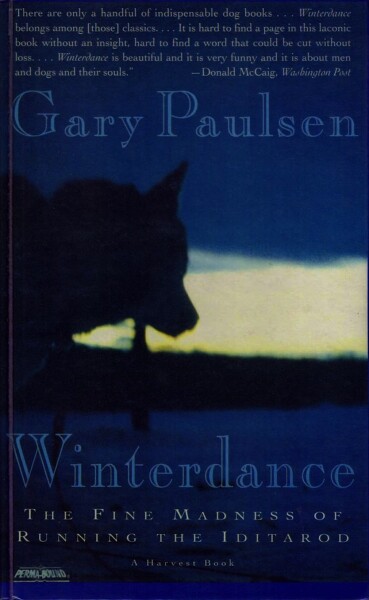
Winterdance is Paulsen’s memoir from the years he spent training for and running the Iditarod dog sled race that takes place every year in Alaska. This tale of “fine madness,” as Paulsen puts it, is a celebratory blend of nature writing, manly perseverance, and––above all––the unbreakable bonds of love that can form between humans and dogs. The book is funny, sad, and deeply inspiring.
I was also able to spend a few days working my way through The Emotional Lives of Teenagers by Lisa Damour.
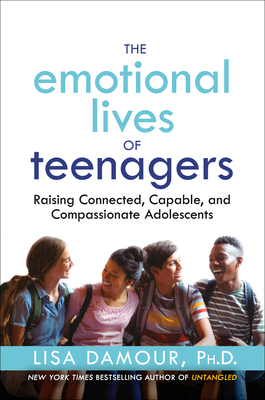
This brief but insightful book helped me frame an initial therapeutic stance for my work with young people. It’s a useful resource for adults who are searching for healthy ways to connect with teenagers and help them grow in positive, self-directed ways. Damour’s central argument is that it’s impossible to prevent teenagers from experiencing pain and unhappiness, so it’s better to assist them with acknowledging and managing these intense emotions when they arise. “Mental health is not about feeling good,” she writes. “Instead, it’s about having the right feelings at the right time and being able to manage those feelings effectively” (27).
The last nonfiction book I want to mention is Break and Flow by Charlie D. Hankin.
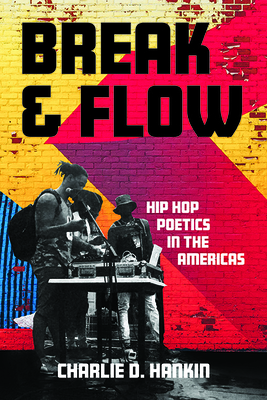
I became friends with Hankin in high school and still have a close relationship with him. It has been amazing to watch him grow into an ambitious academic and world traveler, now with his first book to add to his fine list of accomplishments. Break and Flow examines the language, culture, history, and politics of hip hop in Cuba, Brazil, and Haiti. Hankin argues that rap songs are not simply sonic experiences to be aesthetically enjoyed, but also powerful cultural artifacts that “wield the force of community-building and world-making” (2). Meticulously researched and elegantly presented, Break and Flow offers nuanced and novel perspectives on the present capabilities and future possibilities of one of modernity’s most beloved musical genres.
Music Recommendations
- Elyanna 2 by Elyanna
- Soft Spot by The California Honeydrops
- Loner by Alison Wonderland
- Expert in a Dying Field by The Beths
- Joy’All by Jenny Lewis
- Cruzin’ 4 A Snoozin by Fernmage
- Tears You Hide by Jeremie Albino
- everything is alive by Slowdive
- My Track of the Year: Lusaint’s absolutely stunning cover of “Wicked Game”––full credit to my lovely wife for discovering this gem and sharing with me!
Lost Debates and Dwarfish Shenanigans
A friend recently recommended The Lost Debate podcast, which I’ve been really enjoying. Host Ravi Gupta calls it a “show for political eclectics.” He and co-host Rikki Schlott go out of their way to provide balanced and nuanced analysis of a wide range of social, political, economic, and cultural issues. This is solid intellectual fodder for folks seeking to cut through the noise of the culture wars and form opinions based in more in reality than partisanship.
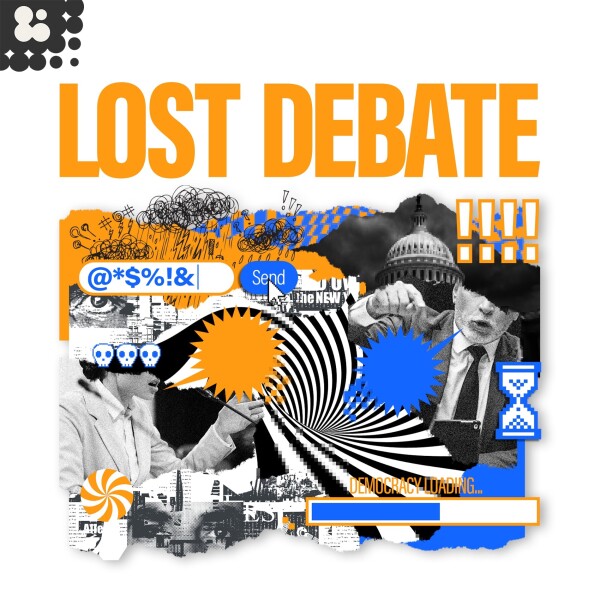
Earlier this year, I started playing a video game called Deep Rock Galactic (DRG), which is the passion project of a developer called Ghost Ship Games (GSG). DRG is a first person shooter co-op game where teams of 1-4 dwarfs explore procedurally-generated maps in search of precious minerals to mine and send back to their corporate employer, all while defending themselves against hordes of hostile bugs. DRG is the most personally rewarding game I have ever played, and is also among the very best overall games I have encountered in over two decades of gaming.
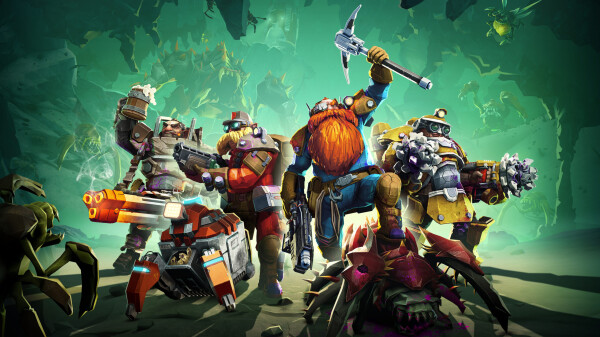
For years I have stuck to single player games because I wasn’t interested in social games, which are often highly competitive and full of toxic assholes and hackers. But DRG showed me the beauty of a game that could motivate total strangers to be kind, patient, and cooperative in order to achieve a common set of goals.
The culture that DRG’s players have developed is extraordinary, with norms of helpfulness and common decency that I didn’t think were possible in an anonymous online environment. The seeds of this culture were planted by GSG through their design choices––especially the complementary traversal tools and weapons used by each class, as well as the “salute” function where pressing a button causes your dwarf to raise his pick-ax and shout some version of the game’s “Rock and Stone!” motto, prompting your teammates to do the same. DRG is also very goofy and doesn’t take itself too seriously, which attracts a relaxed and self-aware player base. Then GSG kept the love coming with periodic free content and optimization updates that have continued years after the game’s initial release. Best of all, learning the game’s nuances under the tutelage of generous “greybeards” (veteran players) enables you to increasingly pay it forward in interactions with “greenbeards” (newer players), generating spontaneous mentor/mentee relationships that make everyone feel welcome and sometimes result in in-game friendships.
If I had more time I could spin a yarn or two about some of the crazier experiences I’ve had down in the mines of Hoxxes IV, but instead I’ll move on and tell you about my favorite fiction books from this year.
Fiction
When I heard that Adrian Tchaikovsky was releasing Children of Memory earlier this year, I was thrilled to find out where he would take his Children of Time series next. This has become one of my all-time favorite science fiction series and this third installment did not disappoint; in fact, I think it’s his best one yet.
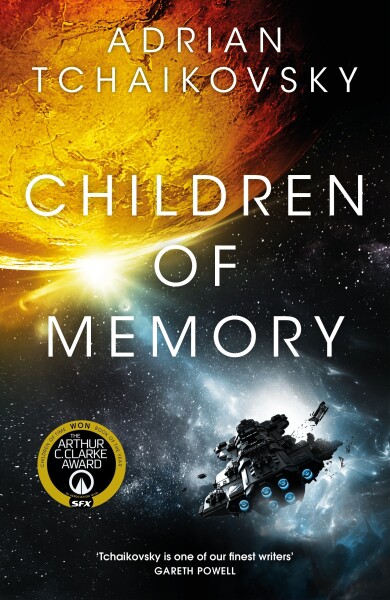
Tchaikovsky continues to build on the evolutionary concepts and thought experiments from the previous two books, this time taking the story in a mysterious and surprising new direction. When an eclectic crew of interstellar adventurers discovers Imir––a partially-terraformed planet colonized by refugees from a dying Earth––they are eager to learn about these new people and their culture. But they soon find themselves drawn into a dark and dizzying tribal mythology with a historical timeline that no one can properly pin down. What follows is a brilliant and thrilling narrative meditation on the nature of identity, the delights and horrors of conscious experience, and the common bonds that unite all sentient creatures.
My most surprising fictional discovery this year was The Scholomance Trilogy by Naomi Novik. A bunch of my friends read it as the books were being published, and I resisted it for a long time because it seemed too much like young adult fiction, which I’m usually not into. But I finally caved and am so glad that I did.
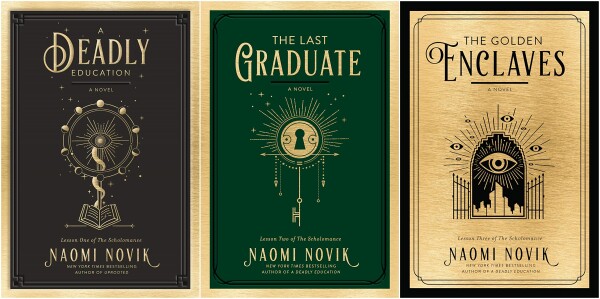
The first book introduces readers to a grim fantasy world in which magicians are constantly threatened by “maleficaria,” a ravenous horde of magical monsters eager to devour the mana that each magician carries inside them. Adolescent magicians have a particularly high mortality rate, so all who are able to gain admission attend the “Scholomance,” a magic-fueled educational institution where teenagers are isolated from the rest of the world while they learn to defend themselves. The story is narrated by Galadriel, a junior at the Scholomance. Galadriel is gifted with powerful magical potential, but she is also extremely socially inept. The trilogy tells of the story of Galadriel’s journey as she attempts to build her reputation, form meaningful relationships, and stay alive in the Scholomance and eventually the world beyond.
In many ways, the Scholomance books seem like just another trendy, post-Harry Potter series about magical young people. That while that’s partly true, there are elements that make the books stand out––notably Novik’s amazing worldbuilding, memorable characters, and commitment to exploring collective ways of solving difficult problems. By the end of the third book, I realized that the story is essentially a manifesto of contemporary ethical philosophy successfully disguised as a fantasy series starring angsty teenagers. I’m sure that many people will read these books and have no idea that the person who wrote them is obsessed with coordination problems, Thucydides traps, economic externalities, multipolar traps, and trolley problems. And this is a very good thing, because it means that the Scholomance can accomplish one of literature’s highest social goods, which is to introduce readers to new and valuable ideas without it feeling like hard work.
Finally, the novel that captured my whole heart this year was Tomorrow, and Tomorrow, and Tomorrow by Gabrielle Zevin.

This novel tells the story of Sam and Sadie, two adolescents who strike up an unlikely friendship based on a shared love of video games. As young adults, Sam and Sadie both become video game designers and discover a knack for producing innovative games together. But as their careers take off, their collaborative partnership becomes threatened by their mutual stubbornness and failures to communicate, forcing them to confront their differences and explore the true nature of their undeniable love for one another. Bolstered by Zevin’s excellent prose and a host of delightful supporting characters, Tomorrow, and Tomorrow, and Tomorrow is an unforgettable journey that will win over gamers and non-gamers alike.
Even though you know you’re only one of countless readers, sometimes you feel like a novel was written just for you at exactly the right moment in your life. For whatever reason, Tomorrow, and Tomorrow, and Tomorrow gave me permission to fully accept my deep love of video games––something I’ve been at least partially resisting for my entire adulthood. This kicked off a new process of healthily integrating my gamer self it into the rest of my identity. I’m really grateful to Zevin for helping me get to this point. I’ll leave you with a few of my favorite passages:
Despite evidence to the contrary, it is not an inevitability that we should be our worst selves behind the mask of an avatar. What I believe to my very core…is that virtual worlds can be better than the actual world. They can be more moral, more just, more progressive, more empathetic, and more accommodating of difference. And if they can be, shouldn’t they be? (252-3)
What is a game?…It’s tomorrow, and tomorrow, and tomorrow. It’s the possibility of infinite rebirth, infinite redemption. The idea that if you keep playing, you could win. No loss is permanent, because nothing is permanent, ever. (336)
The thing I find profoundly hopeful when I’m feeling despair is to imagine people playing, to believe that no matter how bad the world gets, there will always be players. (387)
Remembering What Matters
As my life becomes busier, I do the same thing most people do. I get stressed, I get impatient, and I get tired. I fall into small-minded patterns of perception that miss the big picture. I overgeneralize, become less generous, and then overcompensate when I realize I’ve gone too far. And the people who see me do this the most are those closest to me––the ones who matter the most.
Our tendency to show our worst selves in the environments that feel most like home, around the people who feel safest, is a frustrating facet of the human condition. I haven’t found a way to thwart this dynamic, so the best I can do is try to balance out the bad days by bringing my best selves to the living room and dinner table, as often as possible. And I’m lucky to be surrounded by truly loving friends and family, folks who are quick to forgive and forget. I’ll be spending this holiday season warmed by their embrace, and doing what I can to reciprocate. I wish the same comfort and joy for all my readers, loved ones, and sentient beings everywhere.
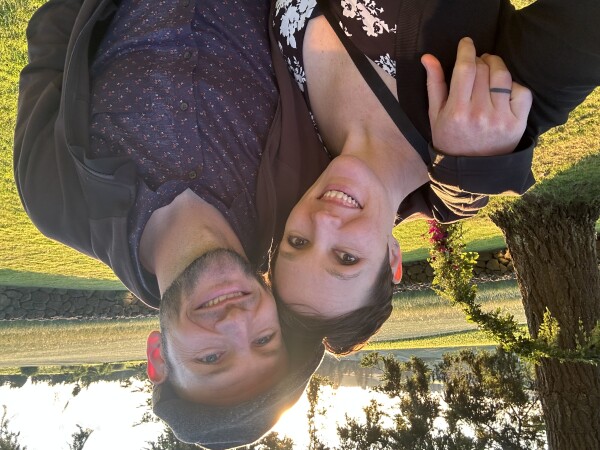
Thank you for these well expressed thoughts, and all your recommendations.
Besy of happiness fulfillment and success in the new year with your career track and your lovely family and friends Jerryl Lynn Rubin
Sending love right back! Thanks for reading. 🙂
Nice. thanks, i look forward to checking out some of the music i haven’t yet, but seeing the Beths live was really fun.
Glad you got to see The Beths this year and that it was a satisfying show. Thanks for reading! 🙂